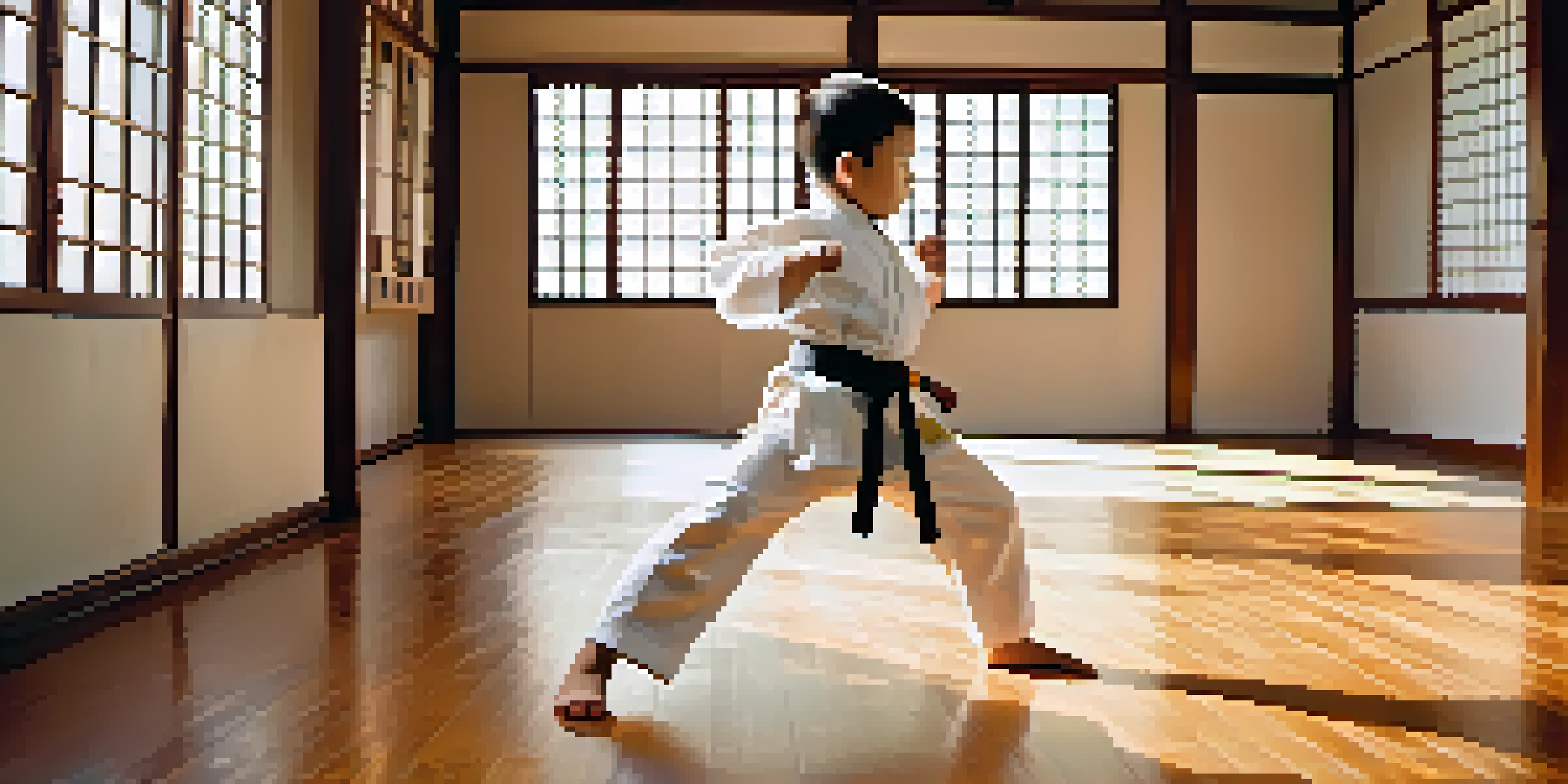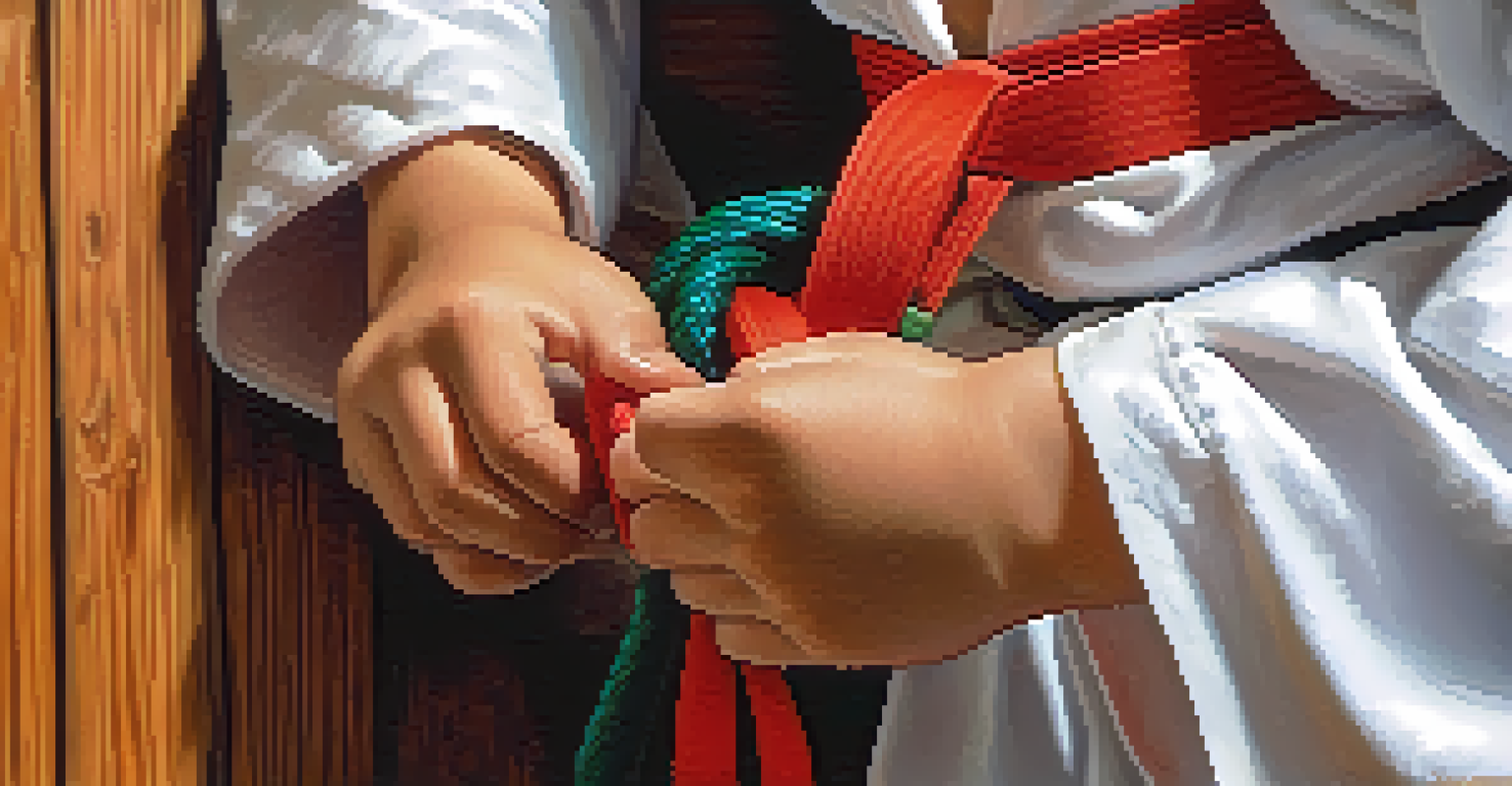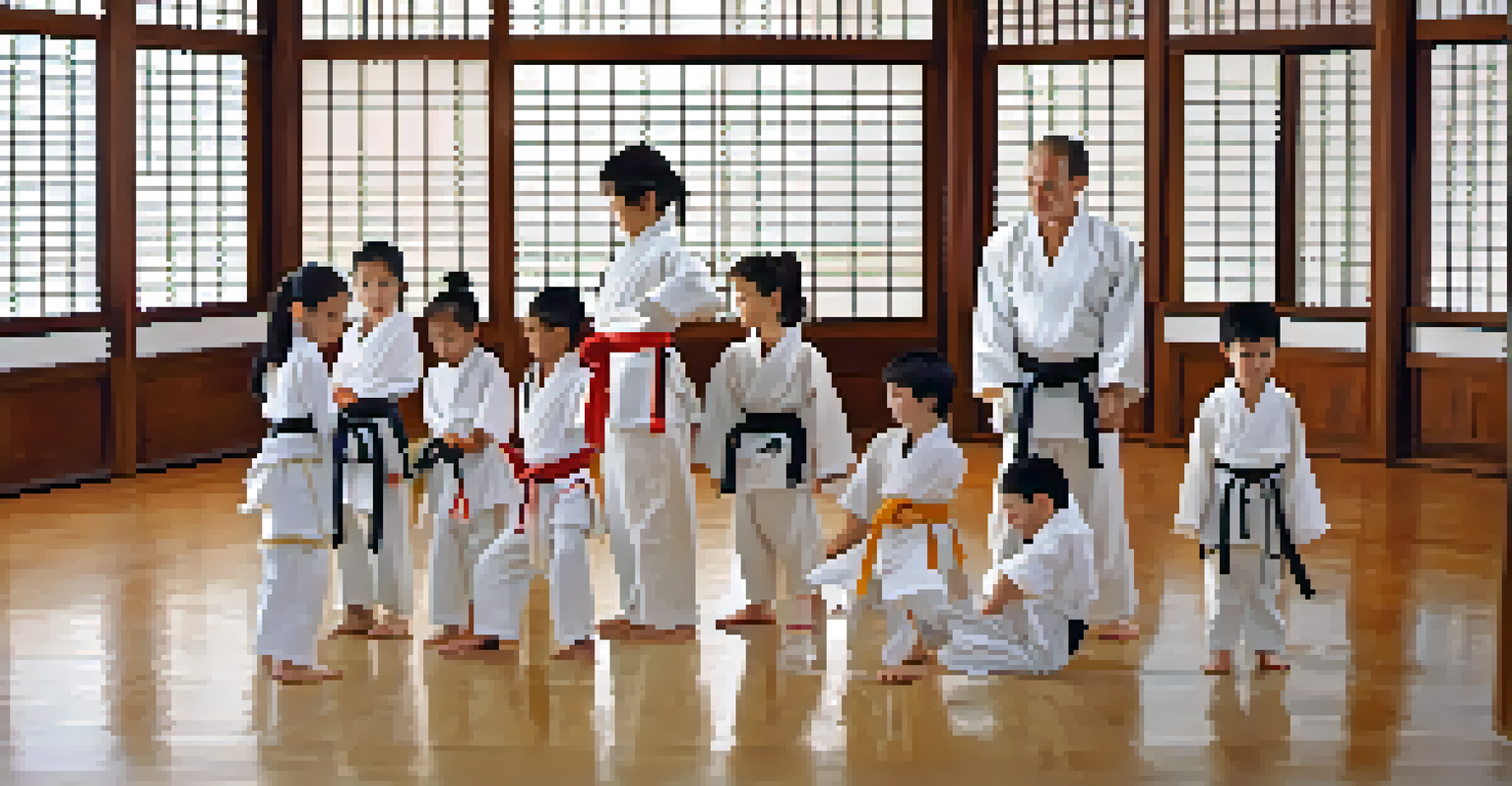Building Discipline Through Martial Arts for Children

Understanding Discipline and Its Importance for Kids
Discipline is not just about following rules; it's about self-control and focus. For children, learning discipline early on can set the foundation for success in various aspects of life. It helps them manage their emotions and behavior, leading to better relationships and academic performance.
Discipline is the bridge between goals and accomplishment.
Martial arts offer a unique environment where discipline is ingrained in every practice. Through regular training, kids learn to respect their instructors and peers, which instills a sense of responsibility. This environment encourages children to understand the importance of commitment and perseverance.
Moreover, discipline learned in martial arts can translate to other areas of life. Children who practice martial arts often find it easier to handle schoolwork and personal challenges, as they've developed the skills to stay focused and determined. This foundation can serve them well into adulthood.
How Martial Arts Classes Promote Structure
Martial arts classes are structured and predictable, providing children with a sense of safety and routine. Each session typically begins with warm-ups, followed by technique training, and ends with cool-down exercises. This consistent format helps kids understand the importance of preparation and planning.

As children participate in these classes, they learn to respect the schedule and the instructors, which reinforces their sense of responsibility. The structure of martial arts training encourages them to arrive on time and be prepared, which are essential skills for their future.
Discipline Fosters Life Skills
Learning discipline through martial arts equips children with essential skills like self-control, emotional regulation, and problem-solving.
Additionally, this structured environment promotes a sense of belonging and teamwork. Children work together to learn and improve, fostering camaraderie and support among peers. This social aspect helps them understand the value of discipline within a community.
Setting Goals in Martial Arts: A Path to Discipline
One of the key elements of martial arts is goal setting. Whether it's earning a new belt or mastering a specific technique, children are encouraged to set and achieve personal goals. This process teaches them the importance of working towards something and the discipline required to reach it.
The future belongs to those who believe in the beauty of their dreams.
As kids set these goals, they learn to break them down into manageable steps, which enhances their problem-solving skills. For instance, if a child aims to earn a new belt, they must practice regularly and seek feedback from their instructors. This teaches them patience and resilience.
Moreover, achieving these goals brings a sense of accomplishment that boosts their self-esteem. Celebrating milestones, whether big or small, reinforces the idea that hard work and discipline pay off, motivating them to continue striving for success in all areas of life.
The Role of Respect in Martial Arts Training
Respect is a cornerstone of martial arts, and it plays a crucial role in teaching discipline to children. From bowing to instructors to acknowledging fellow students, every action in the dojo is rooted in respect. This practice encourages children to appreciate not only their teachers but also their peers.
Through learning respect, children develop a sense of accountability for their actions. They understand that their behavior affects others, which fosters empathy and social awareness. This is particularly important in a world where interpersonal skills are invaluable.
Structured Classes Build Responsibility
The predictable structure of martial arts classes teaches kids the importance of preparation, punctuality, and teamwork.
As they practice respect, children also learn to handle conflicts gracefully. Martial arts teaches them to resolve disputes through communication rather than aggression, reinforcing the discipline needed in difficult situations. This life skill extends far beyond the training floor.
Building Confidence Through Discipline
Martial arts training inherently builds confidence, which is closely tied to discipline. As children master new skills and techniques, they begin to believe in their abilities. This newfound confidence encourages them to take on challenges both in and out of the dojo.
The discipline required to learn martial arts cultivates a strong work ethic. Children realize that consistent effort leads to improvement, and this understanding empowers them to tackle various tasks with a positive mindset. They learn that perseverance can lead to success.
Additionally, the supportive environment of martial arts encourages children to step out of their comfort zones. Whether it's performing in front of peers or competing in a tournament, these experiences boost their self-assurance. This confidence, rooted in discipline, prepares them for future endeavors.
Discipline and Emotional Regulation in Children
Martial arts training also aids in emotional regulation, an essential aspect of discipline. Children learn to manage their emotions through techniques that promote focus and calmness. This skill is particularly valuable in today's fast-paced world, where stress and anxiety can be overwhelming.
As they practice martial arts, kids are taught to channel their energy positively. Techniques like deep breathing and meditation help them remain centered, especially during challenging moments. This practice encourages them to pause before reacting, promoting thoughtful responses rather than impulsive ones.
Goal Setting Boosts Confidence
Setting and achieving goals in martial arts enhances children's self-esteem and motivates them to tackle challenges in various areas of life.
Furthermore, this emotional control translates to everyday situations, such as handling school pressures or peer conflicts. Children who can regulate their emotions are better equipped to navigate life's challenges, reinforcing the idea that discipline is not just about rules but also about emotional intelligence.
The Lasting Impact of Martial Arts Discipline
The discipline learned through martial arts has a lasting impact that extends well into adulthood. Many practitioners carry the lessons of respect, perseverance, and emotional control throughout their lives. This foundation shapes their character and influences their personal and professional relationships.
As children transition into teenagers and eventually adults, the discipline they cultivated during their martial arts journey can guide their decision-making. They are more likely to approach challenges with a disciplined mindset, enhancing their ability to achieve long-term goals.

Ultimately, the skills and values learned in martial arts can create a ripple effect, influencing not just the individual but also their community. By fostering discipline in children through martial arts, we empower them to become positive contributors to society, equipped to handle life's ups and downs.